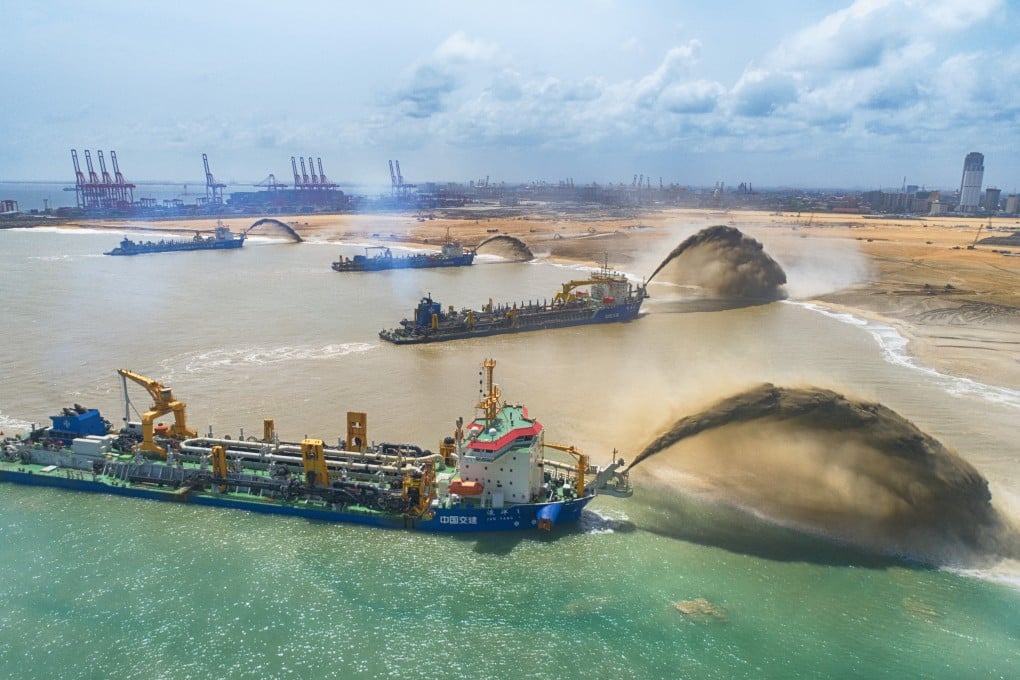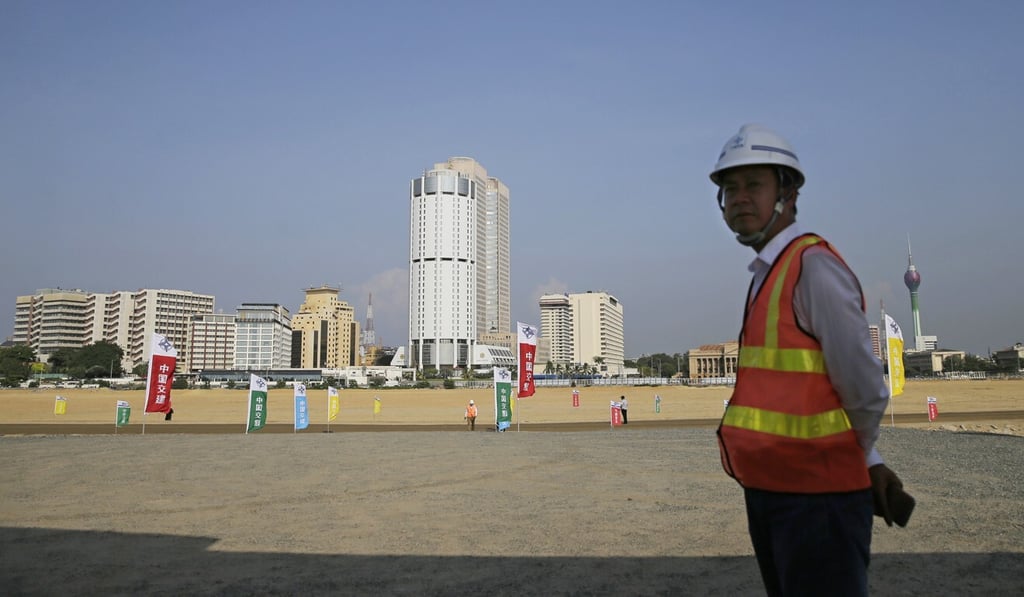China-built port needs public approval to set up board, says Sri Lanka’s top court
- The Supreme Court says a bill to set up an economic commission in a Chinese-built port city could undermine parliament
- The ruling comes amid fears that the Colombo Port City, a Belt and Road Initiative project, could become a virtual Chinese outpost

Sri Lanka’s top court has ruled that some provisions of a bill to set up a powerful economic commission in a Chinese-built port city violate the constitution and require approval by a public referendum to become law.
At the centre of the dispute are fears that the US$1.4 billion port city, part of China’s sweeping Belt and Road Infrastructure initiative, could become a virtual Chinese outpost or colony.
Sri Lanka’s government is looking to the project as a lifeline for an economy wrecked by the coronavirus pandemic.
Parliament Speaker Mahinda Yapa Abeywardena read out the Supreme Court’s ruling on the Colombo Port City Economic Commission Bill on Tuesday.
The court said the bill could undermine the exclusive lawmaking powers of Parliament by empowering the proposed five-to-seven member commission, appointed by the president, to set and enforce rules within the port city.
That provision, and proposed heavy fines and long prison terms for those found breaching those rules, will require a two-thirds approval in the 225-seat Parliament and public approval through a referendum, the court said.

It pointed to other problems, such as sections exempting companies operating within the port city, which is due to be a special economic zone, from various laws on the grounds the businesses are strategically important.